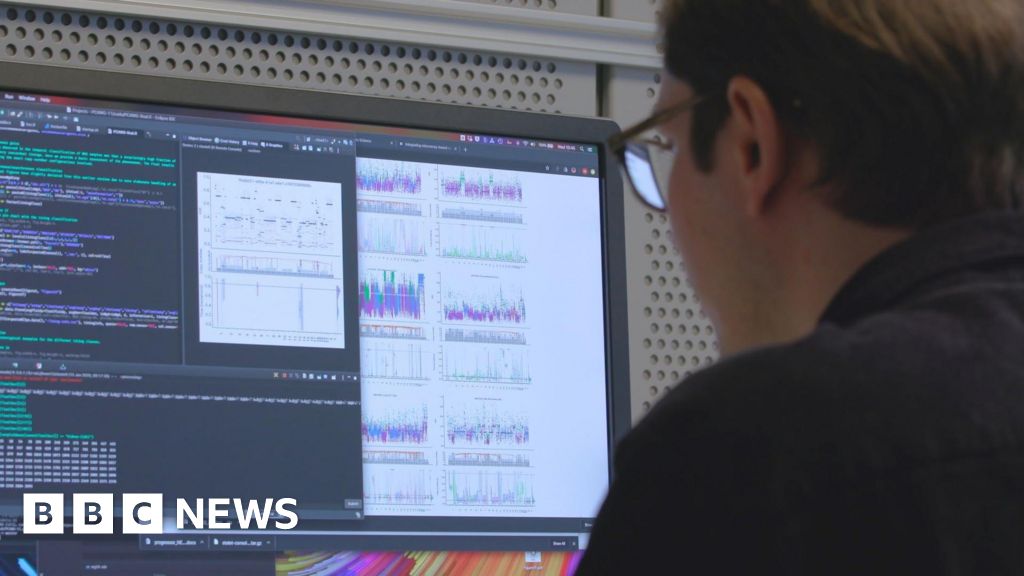
AI can forecast your future health – just like the weather

AI’s Potential to Forecast Future Health: A Revolutionary Approach
Recent advancements in artificial intelligence (AI) have opened new avenues for predicting health outcomes, much like weather forecasts predict rain. Researchers have developed an AI model capable of predicting individuals’ health issues over a decade into the future. This innovative technology identifies patterns in medical records to assess the risk of over 1,000 diseases, offering a glimpse into the future of personalized healthcare.
The Delphi-2M Model
The AI model, known as Delphi-2M, employs advanced algorithms similar to those used in popular AI chatbots like ChatGPT. While chatbots are trained to recognize linguistic patterns and predict word sequences, Delphi-2M analyzes anonymous medical records to forecast health risks. Instead of providing specific dates for health events—such as predicting a heart attack on a particular day—the model estimates the likelihood of various diseases occurring.
Professor Ewan Birney, the interim executive director of the European Molecular Biology Laboratory (EMBL), likened the model’s predictions to weather forecasts. He stated, “So, just like weather, where we could have a 70% chance of rain, we can do that for healthcare.” This capability allows for simultaneous predictions across multiple diseases, a feat that has not been achieved until now.
Data-Driven Development
The development of Delphi-2M was grounded in data from the UK Biobank project, which includes comprehensive medical information from over 400,000 individuals. This dataset encompasses hospital admissions, general practitioner (GP) records, and lifestyle choices such as smoking. After its initial training, the model’s predictions were validated against data from additional Biobank participants and subsequently tested with medical records from 1.9 million individuals in Denmark.
Professor Birney expressed confidence in the model’s accuracy, particularly in Denmark, stating, “If our model says it’s a one-in-10 risk for the next year, it really does seem like it turns out to be one in 10.” The model has shown particularly strong performance in predicting diseases with clear progression patterns, such as type 2 diabetes, heart attacks, and sepsis. However, it is less effective for unpredictable health events like infections.
Practical Applications
While the AI tool is not yet ready for clinical deployment, its potential applications are significant. Currently, individuals are prescribed cholesterol-lowering statins based on risk assessments for heart attacks or strokes. Delphi-2M aims to enhance this approach by identifying high-risk patients early, allowing for timely interventions that could prevent disease onset. For instance, individuals identified as likely to develop certain liver disorders might receive tailored advice to reduce alcohol consumption.
Moreover, the AI model could play a crucial role in shaping disease screening programs and analyzing healthcare records to predict future demands. For example, it could estimate the number of heart attacks expected in a specific area, such as Norwich, by the year 2030, aiding in resource allocation and healthcare planning.
A New Era in Understanding Health
Professor Moritz Gerstung, head of the AI division at the German Cancer Research Centre (DKFZ), emphasized the transformative potential of this research. He noted, “This is the beginning of a new way to understand human health and disease progression.” He further highlighted the promise of generative models like Delphi-2M in personalizing healthcare and anticipating widespread healthcare needs.
Ongoing Research and Ethical Considerations
Despite the promising results, Delphi-2M is still in the research phase and requires further refinement and testing before clinical application. One of the challenges is the potential bias inherent in the model, as it was primarily developed using data from the UK Biobank, which predominantly includes individuals aged 40 to 70. To address this limitation, the researchers are working to incorporate a broader range of medical data, including imaging, genetic information, and blood analyses.
Professor Birney cautioned that while the technology is promising, it is essential to approach its implementation with care. “Just to stress, this is research—everything needs to be tested and well-regulated and thought about before it’s used,” he remarked. He anticipates that the journey from confident scientific understanding to routine clinical use will mirror the decade-long process observed in the integration of genomics in healthcare.
The study behind Delphi-2M represents a collaborative effort involving the European Molecular Biology Laboratory, the German Cancer Research Centre (DKFZ), and the University of Copenhagen.
Professor Gustavo Sudre, a neuroimaging and AI researcher at King’s College London, praised the research as a significant step toward creating scalable, interpretable, and ethically responsible predictive modeling in medicine.
Key Facts
– **AI Model**: Delphi-2M predicts health risks for over 1,000 diseases.
– **Data Source**: Developed using data from the UK Biobank, which includes records from over 400,000 individuals.
– **Testing**: Validated with medical records from 1.9 million people in Denmark.
– **Accuracy**: Demonstrated strong predictive capabilities, especially for diseases with clear progression.
– **Applications**: Aims to identify high-risk patients for early intervention and inform healthcare resource planning.
– **Development Status**: Still in the research phase, requiring further testing and refinement before clinical use.
Source: www.bbc.com


